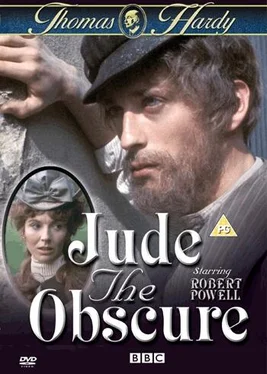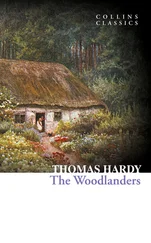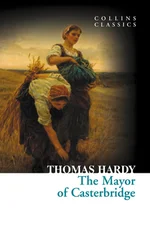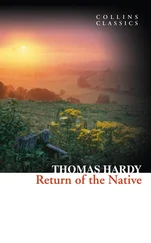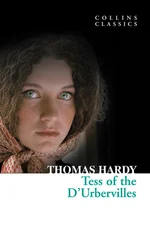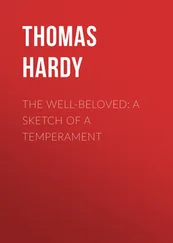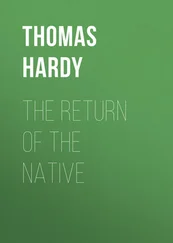"How?"
"I mean it is a nominal marriage only. It hasn't been more than that at all since I came back to him!"
"Sue!" he said. Pressing her to him in his arms he bruised her lips with kisses: "If misery can know happiness, I have a moment's happiness now! Now, in the name of all you hold holy, tell me the truth, and no lie. You do love me still?"
"I do! You know it too well! … But I mustn't do this! I mustn't kiss you back as I would!"
"But do!"
"And yet you are so dear!—and you look so ill—"
"And so do you! There's one more, in memory of our dead little children—yours and mine!"
The words struck her like a blow, and she bent her head. "I mustn't —I can't go on with this!" she gasped presently. "But there, there, darling; I give you back your kisses; I do, I do! ␎ And now I'll hate myself for ever for my sin!"
"No—let me make my last appeal. Listen to this! We've both remarried out of our senses. I was made drunk to do it. You were the same. I was gin-drunk; you were creed-drunk. Either form of intoxication takes away the nobler vision… Let us then shake off our mistakes, and run away together!"
"No; again no! … Why do you tempt me so far, Jude! It is too merciless! … But I've got over myself now. Don't follow me—don't look at me. Leave me, for pity's sake!"
She ran up the church to the east end, and Jude did as she requested. He did not turn his head, but took up his blanket, which she had not seen, and went straight out. As he passed the end of the church she heard his coughs mingling with the rain on the windows, and in a last instinct of human affection, even now unsubdued by her fetters, she sprang up as if to go and succour him. But she knelt down again, and stopped her ears with her hands till all possible sound of him had passed away.
He was by this time at the corner of the green, from which the path ran across the fields in which he had scared rooks as a boy. He turned and looked back, once, at the building which still contained Sue; and then went on, knowing that his eyes would light on that scene no more.
There are cold spots up and down Wessex in autumn and winter weather; but the coldest of all when a north or east wind is blowing is the crest of the down by the Brown House, where the road to Alfredston crosses the old Ridgeway. Here the first winter sleets and snows fall and lie, and here the spring frost lingers last unthawed. Here in the teeth of the north-east wind and rain Jude now pursued his way, wet through, the necessary slowness of his walk from lack of his former strength being insufficent to maintain his heat. He came to the milestone, and, raining as it was, spread his blanket and lay down there to rest. Before moving on he went and felt at the back of the stone for his own carving. It was still there; but nearly obliterated by moss. He passed the spot where the gibbet of his ancestor and Sue's had stood, and descended the hill.
It was dark when he reached Alfredston, where he had a cup of tea, the deadly chill that began to creep into his bones being too much for him to endure fasting. To get home he had to travel by a steam tram-car, and two branches of railway, with much waiting at a junction. He did not reach Christminster till ten o'clock.
On the platform stood Arabella. She looked him up and down.
"You've been to see her?" she asked.
"I have," said Jude, literally tottering with cold and lassitude.
"Well, now you'd best march along home."
The water ran out of him as he went, and he was compelled to lean against the wall to support himself while coughing.
"You've done for yourself by this, young man," said she. "I don't know whether you know it."
"Of course I do. I meant to do for myself."
"What—to commit suicide?"
"Certainly."
"Well, I'm blest! Kill yourself for a woman."
"Listen to me, Arabella. You think you are the stronger; and so you are, in a physical sense, now. You could push me over like a nine-pin. You did not send that letter the other day, and I could not resent your conduct. But I am not so weak in another way as you think. I made up my mind that a man confined to his room by inflammation of the lungs, a fellow who had only two wishes left in the world, to see a particular woman, and then to die, could neatly accomplish those two wishes at one stroke by taking this journey in the rain. That I've done. I have seen her for the last time, and I've finished myself—put an end to a feverish life which ought never to have been begun!"
"Lord—you do talk lofty! Won't you have something warm to drink?"
"No thank you. Let's get home."
They went along by the silent colleges, and Jude kept stopping.
"What are you looking at?"
"Stupid fancies. I see, in a way, those spirits of the dead again, on this my last walk, that I saw when I first walked here!"
"What a curious chap you are!"
"I seem to see them, and almost hear them rustling. But I don't revere all of them as I did then. I don't believe in half of them. The theologians, the apologists, and their kin the metaphysicians, the high-handed statesmen, and others, no longer interest me. All that has been spoilt for me by the grind of stern reality!"
The expression of Jude's corpselike face in the watery lamplight was indeed as if he saw people where there was nobody. At moments he stood still by an archway, like one watching a figure walk out; then he would look at a window like one discerning a familiar face behind it. He seemed to hear voices, whose words he repeated as if to gather their meaning.
"They seem laughing at me!"
"Who?"
"Oh—I was talking to myself! The phantoms all about here, in the college archways, and windows. They used to look friendly in the old days, particularly Addison, and Gibbon, and Johnson, and Dr. Browne, and Bishop Ken—"
"Come along do! Phantoms! There's neither living nor dead hereabouts except a damn policeman! I never saw the streets emptier."
"Fancy! The Poet of Liberty used to walk here, and the great Dissector of Melancholy there!"
"I don't want to hear about 'em! They bore me."
"Walter Raleigh is beckoning to me from that lane—Wycliffe—Harvey—Hooker—Arnold—and a whole crowd of Tractarian Shades—"
"I don't want to know their names, I tell you! What do I care about folk dead and gone? Upon my soul you are more sober when you've been drinking than when you have not!"
"I must rest a moment," he said; and as he paused, holding to the railings, he measured with his eye the height of a college front. "This is old Rubric. And that Sarcophagus; and Up that lane Crozier and Tudor: and all down there is Cardinal with its long front, and its windows with lifted eyebrows, representing the polite surprise of the university at the efforts of such as I."
"Come along, and I'll treat you!"
"Very well. It will help me home, for I feel the chilly fog from the meadows of Cardinal as if death-claws were grabbing me through and through. As Antigone said, I am neither a dweller among men nor ghosts. But, Arabella, when I am dead, you'll see my spirit flitting up and down here among these!"
"Pooh! You mayn't die after all. You are tough enough yet, old man."
It was night at Marygreen, and the rain of the afternoon showed no sign of abatement. About the time at which Jude and Arabella were walking the streets of Christminster homeward, the Widow Edlin crossed the green, and opened the back door of the schoolmaster's dwelling, which she often did now before bedtime, to assist Sue in putting things away.
Sue was muddling helplessly in the kitchen, for she was not a good housewife, though she tried to be, and grew impatient of domestic details.
"Lord love 'ee, what do ye do that yourself for, when I've come o' purpose! You knew I should come."
Читать дальше
